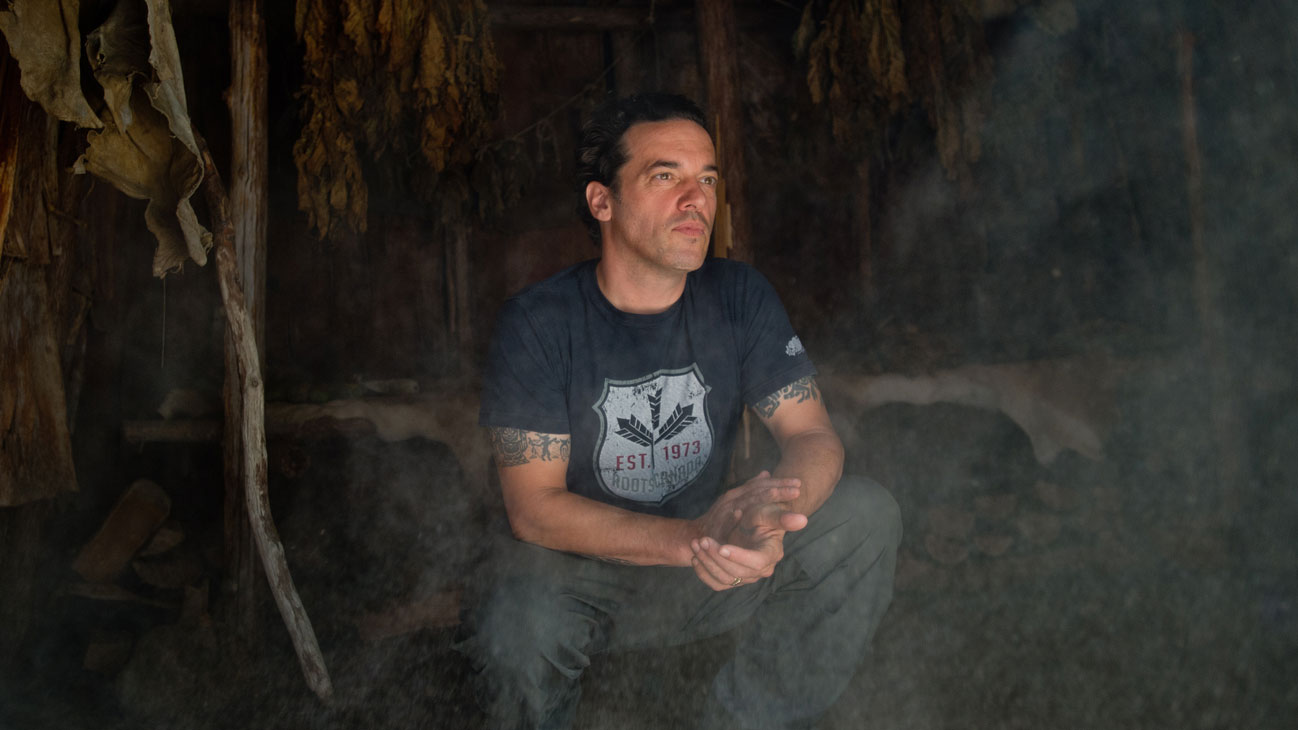Joseph Boyden is a national and international literary superstar. Shooting to fame with his first novel, the multi-award winning Three Day Road, Joseph has repeated his triumphs in his subsequent novels, Through Black Spruce and The Orenda. Exploring and delving into the experiences of Aboriginal peoples, while examining themes of history, race, alienation, culture, and diversity, Joseph’s engrossing talks deepen our understanding of today’s—and yesterday’s—complex world. Last week, Joseph held his first event to raise funds for a camp he started to help Aboriginal and inner city kids:
In the wilderness 900 kilometres north of Toronto lies a plot of land that author Joseph Boyden calls paradise.
Camp Onakawana is not conventionally pretty. The land is pocked with muskeg and the trees are scrawny. What makes the six-acre retreat beautiful is that it offers kids from the far north a chance to escape from the oppressive sense of failure that drives so many to suicide. They learn what it takes to survive.
Boyden has thrown his name — and a large chunk of his royalties — behind it.
“You drive to Cochrane and board the Polar Bear Express ,” he told 375 people who had gathered at West Hill United Church in Scarborough. “Ask the conductor to let you off at Mile 131. Then you walk about 3 km on a nice trail we’ve cut and you’re there.”
It was Boyden’s first official fundraiser. The bestselling novelist — winner of the 2005 Writers’ Trust Fiction Award, the 2008 Giller Prize and the 2014 edition of Canada Reads — has mentioned Camp Onakawana at readings and book signings. But until Sept. 24, he had never asked people to put their money behind his dream: a network of northern camps where aboriginal and inner city kids can learn to smoke and tan a moose hide, catch a fish, sew and bead moccasins and make hand drums.
He wasn’t comfortable in his new role. “I’m not very good at it (fundraising), but it’s something I have to do,” he said afterward.
Technically, he was right. He wasn’t sure how much it cost to run the camp. He didn’t know exactly when the camp, carved out of the bush by his friend William Tozer, a Moose Cree hunter, trapper, guide and former bush pilot, opened. He could not say how many kids had been to Onakawana.
But in a larger sense, Boyden was wrong. He could convey the sense of wonder and healing the camp offers. He could depict a night sky in the James Bay lowlands. He could explain why it is vital that young people from the North recover the skills their parents and grandparents lost when they were sent to residential schools and stripped of their traditions.
He is part Anishinaabe. He taught at Northern College in Moosonee. His former students — now friends — are losing their children in staggering numbers. “The suicide rate is often 100 times higher than the Canadian average,” he said, his voice taut with urgency.
Boyden’s Scarborough audience didn’t need much persuasion. People from all over the city packed the suburban church. They spilled over into the anterooms. Some had copies of The Orenda and Through Black Spruce under their arms. Others had been to northern reserves.
They had watched one government after the next — Stephen Harper’s is just the latest — fail Canada’s original inhabitants. They wanted to show First Nations that Canadians were bigger-spirited than their politicians. Boyden’s project offered them a tangible way to do that.
The organizers, a group of church members who had spent four years learning about Canada’s First Nations, could have sold more than 375 tickets if the fire marshal had let them.
Boyden was genuinely surprised and touched by the turnout. “This many people on a weeknight — it’s amazing. It humbles me.”
The 47-year-old author, teacher and outdoorsman treated the evening as more of a conversation than a fundraiser. He began by reading three excerpts from The Orenda , his latest and most ambitious book. They were powerful but disturbing. “This is a novel about how to hold on when everything is lost,” he explained. “The reality is that the most beautiful people in this country are the ones who have lost so much.”
He stressed the importance of widening the scope of Canadian history to include the complex, highly evolved societies that existed long before the Europeans set foot on this land. He talked about his home in New Orleans, his wife Amanda (an American novelist and trapeze artist), his childhood in Willowdale, his life-changing sojourn in the North and his collaboration with the Royal Winnipeg Ballet to produce Going Home — Truth and Reconciliation. He threw in references to the tarsands, the silencing of Canadian scientists and Toronto’s mayoral race.
He never asked for money. The event raised more than $7,500.

